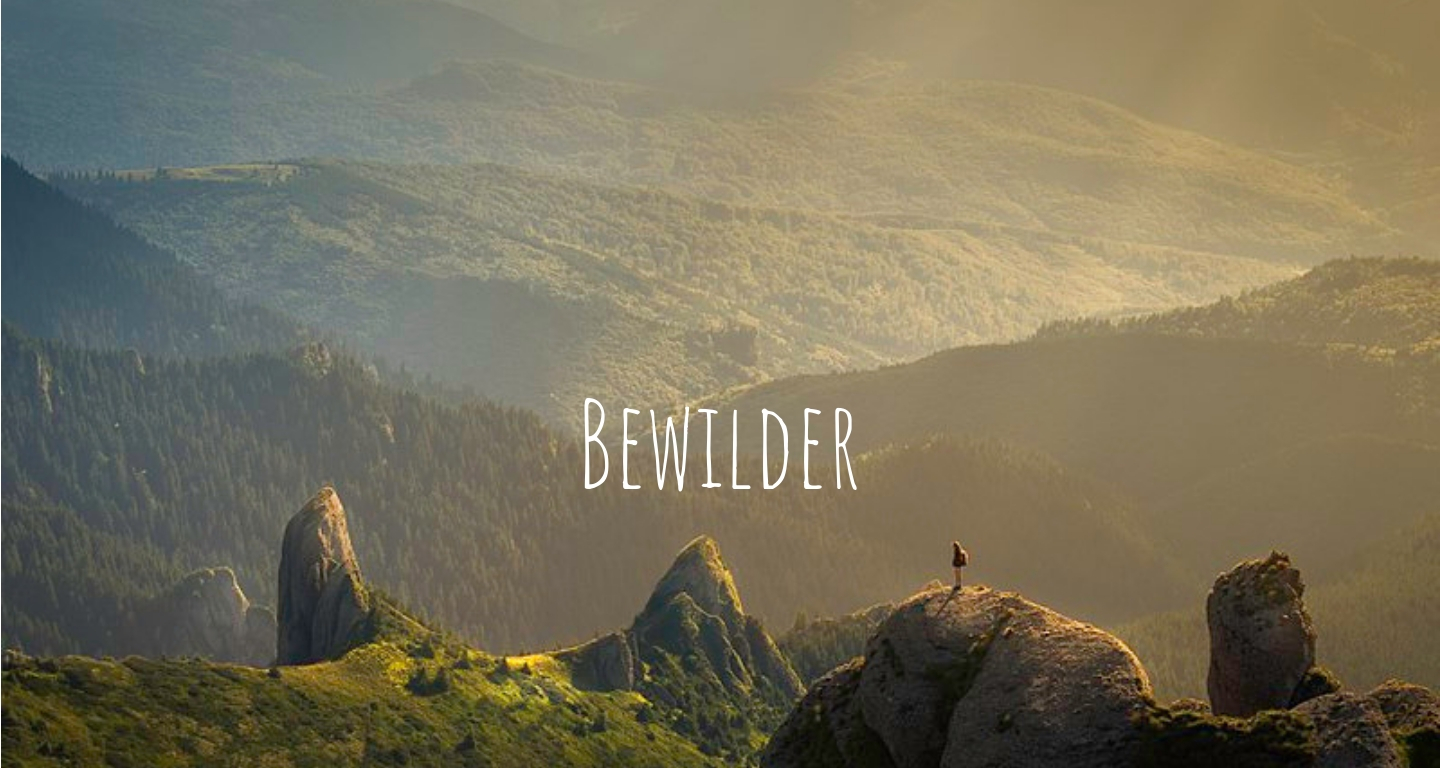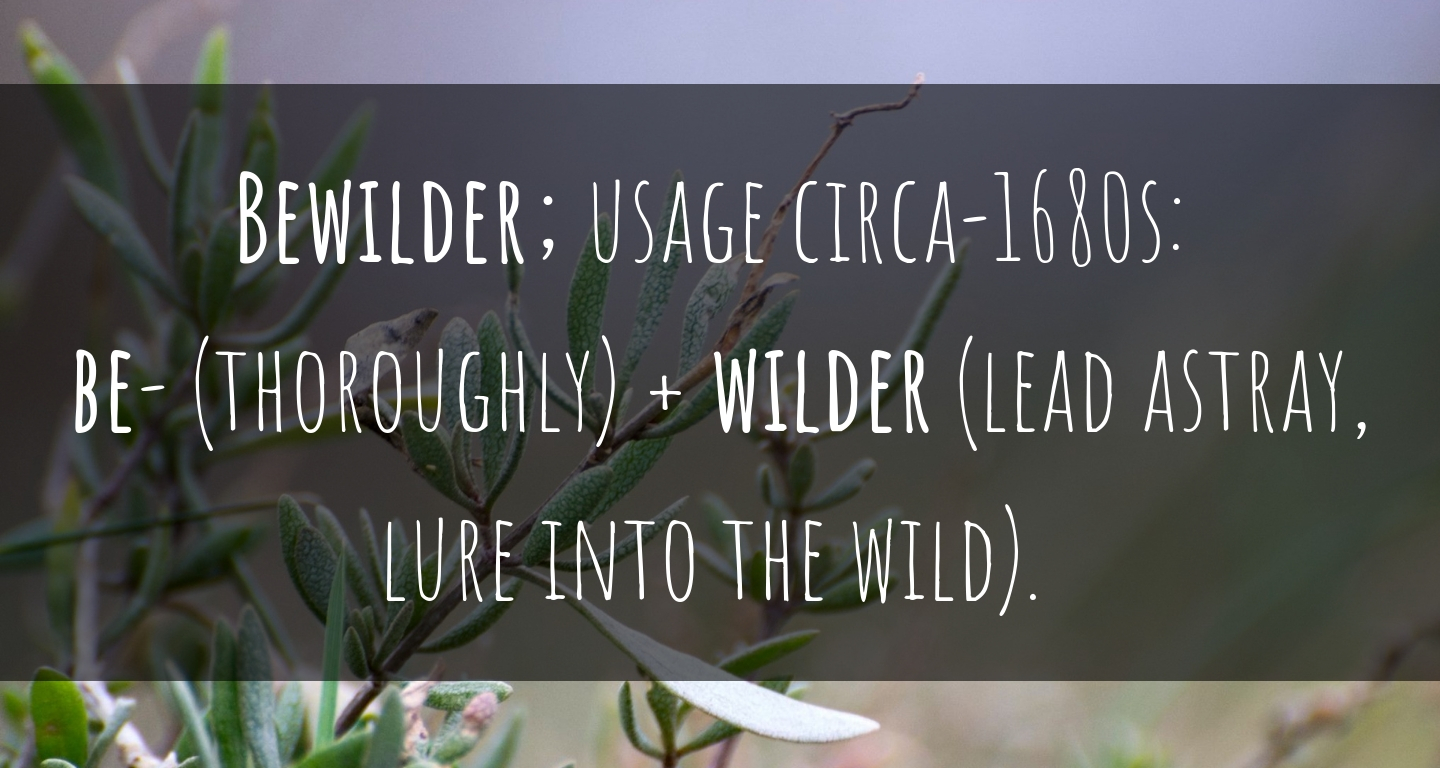
“I am bewildering you a little. Just enough to help you forget what you came to believe, so that you can remember what you’ve always known.”
- Martha Beck (The Bewilderment Chronicles #1)
In the midst of the dark, cold winter; there is a yellow flower which provides a burst of light in an otherwise dreary scene. Before the snowdrops, crocus and hellebores comes Mahonia.
The flower, otherwise known as Oregon Grape, is well known for its sweet scent and its taste matches; a rush to the system. To see such a flower in the depths of our darkest days could be said to inspire a case of bewilderment. What is it doing here? And how?
Bewilder (verb): to confuse utterly, puzzle.
This doesn't quite do it justice though. The power of the phrase has been somewhat diminished from its archaic roots, which paints a more striking picture. As Stephen Jenkinson puts it:
'Bewildered doesn't mean to be vaguely confused, it means to be set upon by the wild'
- Stephen Jenkinson, on the Rewild Yourself podcast
Any time we take notice of the goings on of the scenery around us; the crab apples ready to fall from the trees, the micro sprouts of pungent wild herbs growing in the cracks or the Mahonia offering its bright yellow hand-shake up to us; we are being set upon by the wild. We didn't put them there; why are they here?

"Sell your cleverness and buy bewilderment."
- Jalaluddin Rumi, 13th Century Sufi mystic
To 'sell your cleverness' is to let go and to 'buy bewilderment' is to let in - the wild. We can see this not the common state of being. Everyone around us is displaying cleverness all the time; bewilderment on the other hand; that is undesirable, even shameful. For the poet Rumi, we should all be seeking that salesman who offers bewilderment; he who does not say 'I am an enlightened being, look how clever I am', but he who stands in bewilderment. For that person knows there is never an end to the learning; and to the mystery.
When we go out into the wild and forage for wild plants, mushrooms and seaweeds we all stand one foot in bewilderment. It is the only true response to nature; and it's because we are listening that we can respond at all. If we don't listen to our conversation partner; and allow them time to respond then it's not really a conversation is it?
For our society the common interpretation of bewilderment is the antithesis of what we value; which can be broadly defined as a desire for overriding control. Control in every aspect of our life; from the big to the small. The type of control that leads us to manicured lawns, landscapes of monocultures and strawberries all year round. We believe we are in control; we are safe; this was always the end goal. But there is a counter-narrative; one that says that the way of life we prize now as the ultimate achievement of humankind may not have always been seen as such.
We have a view of our society's evolution as a linear trajectory up to this point; but there are many cases where groups of people turned away from the - ostensibly predictable and safe - sedentary, agricultural state and went back to the - untethered, seemingly rife with danger - nomadic, hunter-gatherer lifestyle. They were lured back in many cases because it was actually less work and less struggle to exist in this way; the burdens of state-control and endless days tending the fields started to seem less like freedom and more like captivity. This is a feeling a lot of people in modern society can likely recognise.
“Our incredible bewilderment (wilderness separation) blinds us from seeing that our many personal and global problems primarily result from our assault of and separation from the natural creation process within and around us. Our estrangement from nature leaves us wanting, and when we want there is never enough.”
― Michael J. Cohen, Reconnecting with Nature: Finding Wellness Through Rebuilding Your Bond with the Earth
Picture the scene: we pack up our picking kits, check the map one last time, head out into the Kent countryside and follow the scent given us by years of foraging these sites; these fields with long-forgotten names and natural monuments used to guide the way. We pass through the hedgerow into a clearing where we have for years at this time of year found our desired wild food; but this year, there is none to be found. We question whether it is the right place (it is), then discuss seasonal factors in this plant's disappearance. It could have been that cold snap we had. Did a tractor come through? Or countless other possibilities.
We trundle out of the clearing and as we do we pass through gigantic orchards, passing rows and rows of trees; the image of productivity. And just as we are taken by the scale of it all we spy in the corner of our eye, off to the side a bounty of the delicious wild salad leaf chickweed; where we had never noticed it before. The journey was not for nothing. Call it trust, call it faith, call it what you want - it is really just very tasty. And it only cost a bit of bewilderment.
“Plunge into the deep waters beyond your own comprehension... Bewilderment is the true comprehension. Not to know where you are going is the true knowledge.”
― Dietrich Bonhoeffer, The Cost of Discipleship
